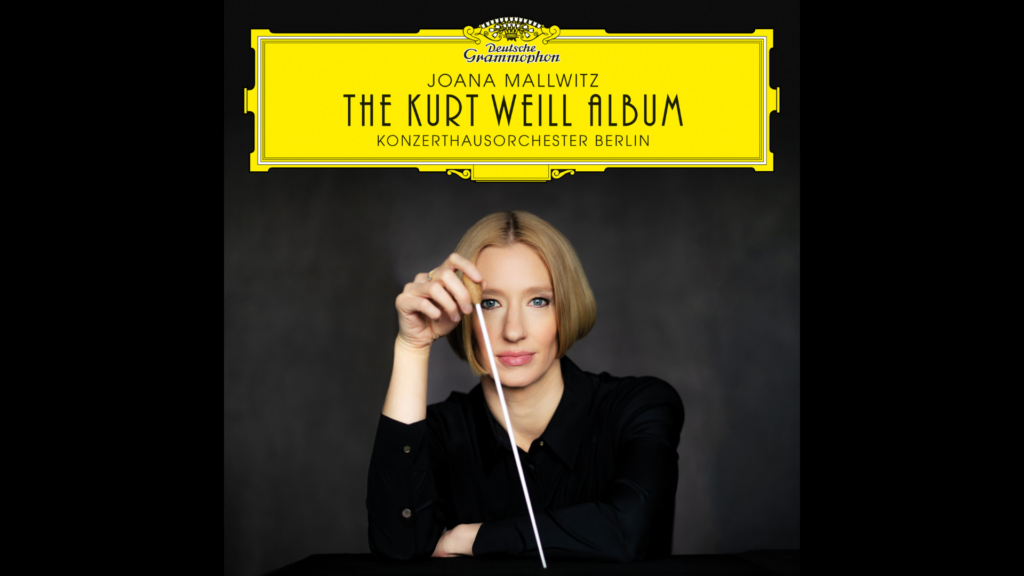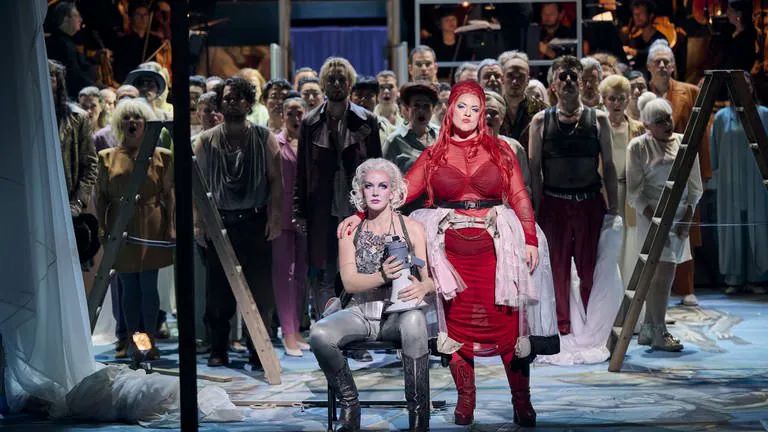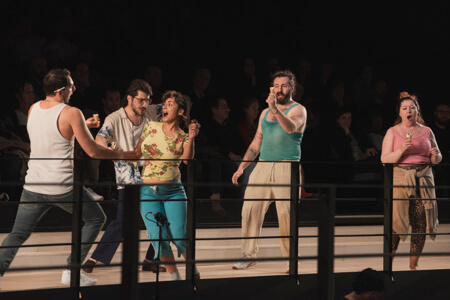“Mack the Knife” Still Thrills
A milestone of 20th century musical theater, The Threepenny Opera (Die Dreigroschenoper) will reach its 75th birthday on August 31, proving that some cultural icons, like classic movie stars, remain forever young. In their opera “by and for beggars,” composer Kurt Weill and playwright Bertolt Brecht, along with Elisabeth Hauptmann, transformed saccharine, old-fashioned opera and operetta forms, incorporating a sharp political perspective and the sound of 1920s Berlin dance bands and cabaret. Weill’s acid harmonies and Brecht’s biting texts created a revolutionary new musical theater that inspired such subsequent hits as Cabaret and Chicago and the current Urinetown. And the show’s opening number, “The Ballad of Mack the Knife,” has become one of the top popular songs of the last century.
The opening night audience at Berlin’s Theater am Schiffbauerdamm didn’t quite know what to expect when the curtain rose on The Threepenny Opera on August 31, 1928, but after the first few musical numbers they began to cheer and call for encores. The show was a brilliant hit, and sheet music was hastily published for the songs, which were performed in homes, in cabarets, and on the radio. Threepenny-fever spread throughout Europe, generating forty-six stage productions of the work in the first year after the Berlin premiere. By 1931, a film version directed by G.W. Pabst entitled Die 3-Groschenoper had opened, making an international star of Weill’s wife, Lotte Lenya, who repeated her performance of Jenny Diver from the show’s first production.
Based on The Beggar’s Opera, written by John Gay in 1728, Weill and Brecht’s version retains the London setting of the original, but moves the action to the eve of Queen Victoria’s coronation. The gangster Macheath marries Polly Peachum, daughter of the boss of London’s beggars. Her enraged father denounces Macheath to the police, and he is turned in by Jenny Diver, an old love. After another wife, Lucy, visits him in jail, Macheath manages to escape but is recaptured. Brought to the gallows for execution, he is pardoned by the queen in honor of her coronation. The Threepenny Opera had been seen in 130 separate productions worldwide by 1933, before the rise of the Nazis forced Weill to flee to Paris in March of that year. He eventually settled in America with Lenya in September 1935; Brecht escaped through Scandinavia, finally reaching the United States via Siberia in 1941. A Nazi moratorium banished all Weill/Brecht works from the German stage, and the 1938 exhibition “Entartete Musik” in Düsseldorf blasted The Threepenny Opera as an example of degenerate Jewish socialist art.
Although The Threepenny Opera reappeared in theaters in Germany and the United States shortly after the end of the war, the work’s true renaissance began with a June 14, 1952, concert performance of Marc Blitzstein’s English adaptation at Brandeis University, conducted by Leonard Bernstein and featuring Lotte Lenya as Jenny. The resulting excitement engendered a New York off-Broadway stage production at the Theater de Lys. Opening on March 10, 1954, for a limited run and re-opening on September 20, 1955, the show had a total of 2,611 performances, at that time the longest running musical in history. The cast album sold in record-breaking numbers, and versions of “Mack the Knife” were hits for Louis Armstrong, Bobby Darin, and Ella Fitzgerald.
Today, seventy-five years after its premiere, The Threepenny Opera is still entertaining contemporary audiences from the Philippines to Israel, from Turkey to Brazil. The re-released recording from the 1954 revival is available on CD, along with a splendid BMG recording made in 1999 incorporating the new critical edition of the score; a dozen other recordings of the complete show are available in various languages. There are three cinematic versions of the work, made in 1931, 1963, and 1988, respectively; and negotiations are currently underway for a fourth Threepenny Opera major film. The Roundabout Theatre Company has commissioned Wallace Shawn to write a new translation of the book and lyrics for a Broadway production in the 2004-2005 season, to be directed by Scott Elliott. Judging by the evidence, the music and story of The Threepenny Opera remain as irresistible to today’s audiences as they were in 1928.


